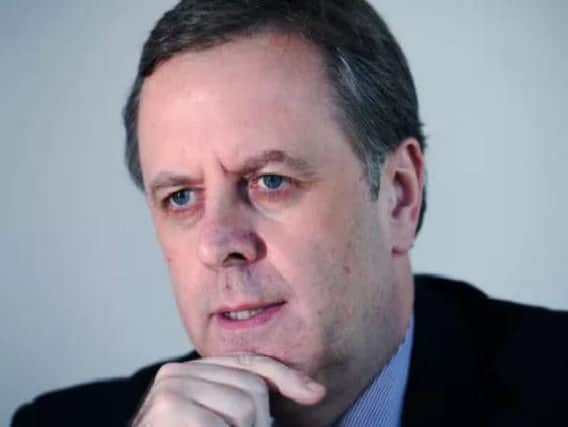West Yorkshire PCC Mark Burns-Williamson speaks out as number of British child slaves increases


Mark Burns-Williamson said the figures showed that more victims were coming forward but said further support was needed to tackle the practice.
The National Crime Agency has warned that organised gangs who are co-ordinating national crime syndicates are fuelling a rise in the number of British children being used as slaves, with cases more than doubling in a year.
Advertisement
Hide AdAdvertisement
Hide AdNew figures released today have revealed the number of modern slavery cases involving minors in the UK went from 676 in 2017 to 1,421 in 2018.
Mr Burns Williamson said: “This report shows that increased awareness and understanding around modern slavery issues is leading to an increase in reporting…
“We have a shared responsibility to support victims and reduce their vulnerability, the NRM is under review and reform and we need to make sure it provides the best possible support for all victims.
“Partnerships are a crucial part of the solution which is why I helped to create both the West Yorkshire Anti-Trafficking Network and the National Anti-Trafficking and Modern Slavery Network, the latter of which I also chair.
Advertisement
Hide AdAdvertisement
Hide Ad“Modern slavery can be a complex crime and easy to overlook, but it is important to stop and think about the human cost.”
Nearly two-thirds of the cases reported last year - a total of 987 - were linked to labour exploitation, which includes slavery at the hands of so-called county lines gangs.
Across all nationalities, the number increased from 2,118 in 2017 to 3,137 in 2018, a rise of 48 per cent.
The annual figures come from the number of cases submitted under the National Referral Mechanism (NRM), used to identify cases of modern slavery.
Advertisement
Hide AdAdvertisement
Hide AdThe NCA’s deputy director, Roy McComb, said: “The increase is undoubtedly the result of greater awareness, understanding and reporting of modern slavery and that is something to be welcomed.
“However, the more we look, the more we find, and it is likely these figures represent only a snapshot of the true scale of slavery and trafficking in the UK.
“Of particular concern is the increase in referrals made for county lines-type exploitation. These are often vulnerable individuals - often children - who are exploited by criminal gangs for the purposes of drug trafficking.
“Our understanding of the threat is much greater than it was a few years ago, and modern slavery remains a high priority for law enforcement, with around 1,500 criminal investigations currently live in the UK.
Advertisement
Hide AdAdvertisement
Hide Ad“But we cannot stop modern slavery alone, we need support and assistance from across the public and private sectors, NGOs and most of all the public themselves.”
About 1,500 county lines networks operate in the UK, with every police force in England and Wales affected. The operations are known for exploiting children to use as couriers to take drugs from towns and cities to customers in rural areas, and have been held up by police chiefs as a key driver behind the rise in violent crime in recent years.
The modern slavery figures showed that 6,993 potential victims were identified in 2018, up from 5,142 in 2017. The most common nationalities were British, Albanian and Vietnamese, although people from 130 countries were victims.
For 2018, 1,625 cases involving victims in the UK were identified, compared with 819 the previous year. The causes of the slavery included labour, sexual exploitation, domestic servitude and organ harvesting.
Advertisement
Hide AdAdvertisement
Hide AdTwo adults and four children were identified as potential victims of organ harvesting, although the NCA said no procedures had occurred. Among the 6,993 referrals, 52 were referred to police in Northern Ireland, 228 to Police Scotland, 251 to Welsh forces and the remaining 6,462 to English forces.
The Yorkshire Post revealed in May last year that communities in rural heartlands were facing a growing threat as organised criminals from as far afield as Manchester, Liverpool and London sought new territories for drug dealing.
Police and Crime Commissioner, Julia Mulligan, warned violence was escalating in North Yorkshire’s communities.